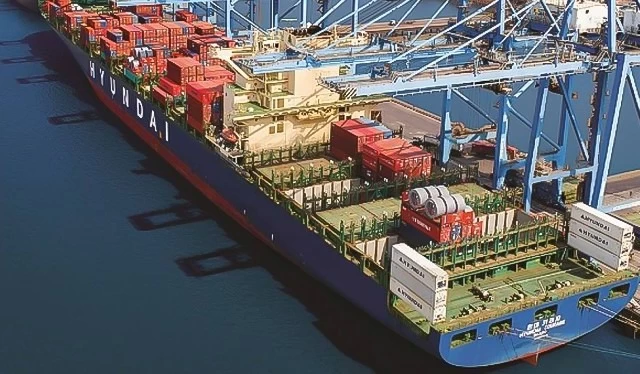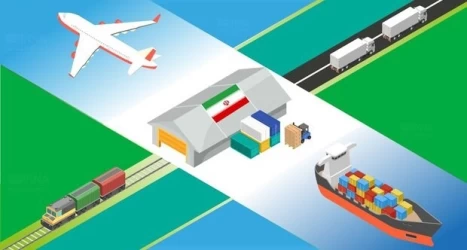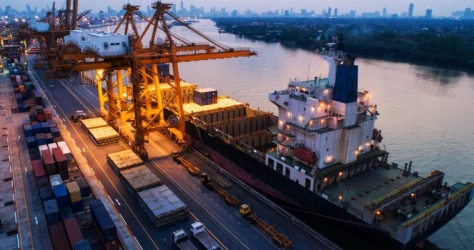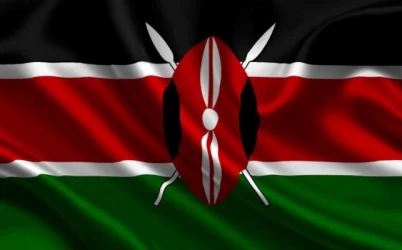Sea freight in Karachi port
Port Karachi is one of the busiest and most significant ports in Pakistan and the broader South Asian region. Serving as a gateway for trade, it plays a crucial role in the country’s economy by facilitating the import and export of goods. This article will explore various aspects of maritime transport at Port Karachi, including its geographical significance, infrastructure, types of services offered, challenges faced, and future opportunities.
Geographical Significance of Port Karachi
Situated in the southern part of Pakistan along the Arabian Sea, Port Karachi holds a strategic location that makes it a vital hub for international trade. Its proximity to major markets in India, China, and the Middle East enhances its importance in regional maritime logistics. The port’s deep waters accommodate large vessels, making it an attractive point for shipping lines operating in the Indian Ocean.
Infrastructure of Port Karachi
Port Karachi boasts modern infrastructure that supports efficient maritime operations:
- Berthing Facilities: The port features numerous berths equipped with advanced technology for loading and unloading cargo. These facilities can handle a variety of vessels, including container ships, bulk carriers, and oil tankers.
- Storage Facilities: With extensive warehousing options, Port Karachi can manage both dry and liquid cargo. The warehouses are designed for temperature-controlled storage to ensure the quality of goods, especially perishables.
- Transportation Connectivity: The port is well-connected to the national transportation network, including roadways and railways, facilitating the swift movement of goods to and from inland destinations. This connectivity is vital for reducing transit times and enhancing overall logistics efficiency.
Types of Maritime Transport Services
Port Karachi offers various maritime transport services, including:
- Container Shipping: The port is equipped to handle a significant volume of containerized cargo, facilitating international trade. The container terminals utilize advanced cranes and automation to ensure rapid turnaround times.
- Bulk Cargo Handling: Port Karachi manages the transportation of bulk goods, including grains, coal, and chemicals. Specialized terminals are dedicated to the efficient loading and unloading of these commodities.
- Automobile Shipping: The port serves as a key entry point for vehicle imports and exports, providing facilities for the handling of cars and other vehicles.
- Ferry Services: Passenger ferry services operate from Port Karachi, providing connectivity to nearby islands and contributing to local tourism.
Challenges Facing Port Karachi
Despite its strategic advantages, Port Karachi faces several challenges:
- Congestion: The port often experiences congestion due to high traffic volumes, leading to delays in cargo handling. This issue necessitates improvements in operational efficiency and infrastructure upgrades.
- Security Concerns: Security remains a paramount concern at Port Karachi. Measures are needed to enhance safety protocols and ensure the protection of cargo and vessels.
- Environmental Issues: The environmental impact of shipping activities poses challenges, including pollution and habitat disruption. Sustainable practices must be adopted to mitigate these effects.
- Technological Gaps: While advancements have been made, there is still a need for further technological integration to optimize operations and improve service delivery.
Future Opportunities
The future of maritime transport at Port Karachi holds significant promise:
- Investment in Infrastructure: Continued investment in port infrastructure can enhance capacity and efficiency, making it a more competitive player in the global shipping industry.
- Public-Private Partnerships: Collaborations between the government and private sector can lead to innovative solutions for overcoming current challenges and improving service quality.
- Technological Integration: Implementing modern technologies, such as automation and digitalization, can streamline operations and enhance supply chain management.
- Expansion of Services: Diversifying the range of services offered at the port can attract more shipping lines and increase cargo volumes, further establishing Port Karachi as a key maritime hub.
Conclusion
Port Karachi is a critical player in maritime transport, serving as a key gateway for trade in the region. With its strategic location, modern infrastructure, and diverse services, the port is well-positioned to enhance its role in international trade. By addressing current challenges and leveraging future opportunities, Port Karachi can continue to grow and adapt to the evolving demands of the global shipping industry.
If you have any specific questions or need further assistance, feel free to ask!











